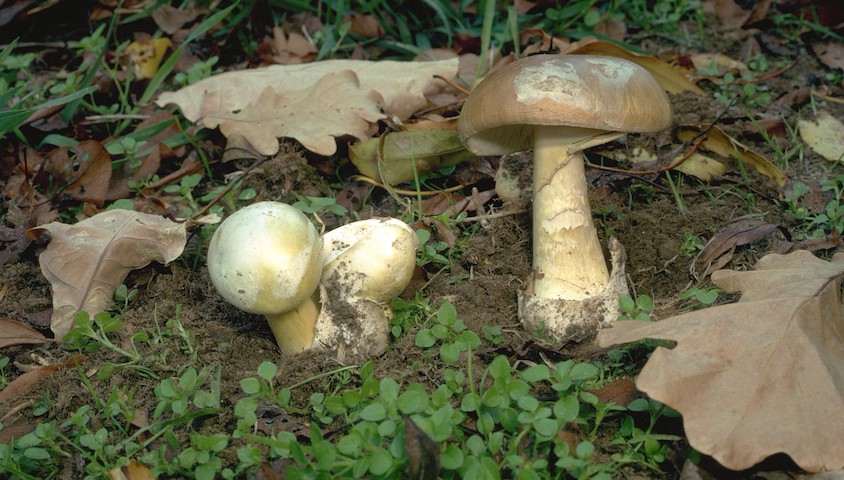On Monday, the Food Safety Information Council (FSIC) released a reminder warning people not to pick or eat wild mushrooms as death cap mushrooms (Amanita phalloides) begins to appear throughout southern and western Australia.
Rachelle Williams, FSIC chairperson, said the poison in one death cap is enough to kill a healthy adult, a sober warning to any adventurers with a penchant for foraging.
“These mushrooms start to appear this time of year and have been found in the Canberra region, in and around Melbourne and even in Adelaide,” she said. “They are not native to Australia and are often found near oak trees growing in warm wet weather during Autumn. The similar marbled deathcap mushrooms have also been recently found in WA. While no cases have been reported in NSW or Tasmania it may be possible that they grow there.
“Death cap mushrooms are difficult to distinguish from other wild mushrooms so we recommend you play it safe and only eat mushrooms that you have purchased from the supermarket, greengrocer or other reputable source. People born overseas, especially in Asian countries, should be aware that these deadly mushrooms can look like edible mushrooms that they may have gathered overseas.”
In the past 16 years, four people have died after eating death cap mushrooms found in the ACT alone.
“The toxin in deathcap mushrooms is not destroyed by cooking. Symptoms include vomiting, diarrhoea and stomach cramps and often don’t appear until 10 to 16 hours after eating. These symptoms may ease for two to three days before a terminal phase of three to four days begins. Without early, effective medical intervention people may go into a coma and die after two or three weeks of liver and kidney failure.
“Nine out of ten cases of mushroom poisoning in Australia result from death cap mushrooms. However there are other wild mushrooms in Australia that, while not fatal, can make you ill with vomiting and diarrhoea. These include the yellow stainer which resembles field a mushroom and is the most commonly ingested poisonous mushroom in Victoria.”
Williams also highlighted the high number of cases of fungi poisoning in children under five years of age, most of whom find the mushrooms in their own backyard.
‘If you suspect you may have eaten a death cap mushroom don’t wait for any symptoms to occur but go to a hospital emergency department taking a sample of the mushroom with you if you can. You can also contact the Poisons Information Centre on 13 11 26 (24 hours a day seven days a week),’ she concluded.


